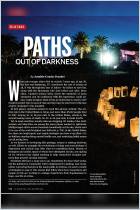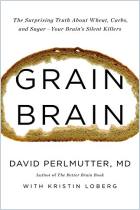
The War on Gluten
Wheat sensitivity isn’t imaginary, most researchers now agree. But what’s really behind it?
Recommendation
Millions of Americans have jumped on the gluten-free bandwagon, with mixed results. Seeking relief from symptoms such as joint and abdominal pain, diarrhea, headaches, bloating and rashes, many claim that eliminating dietary gluten has a beneficial effect. Researchers say that although most such patients don’t have celiac disease or wheat allergy, their symptoms are real, and eliminating gluten may well be a valid strategy for relief. getAbstract recommends this article by Science writer Kelly Servick to those who suffer from unexplained symptoms they suspect may be gluten-related.
Summary
About the Author
Kelly Servick is a staff writer at Science magazine. She focuses on stories about biomedical research and policy.


















Comment on this summary